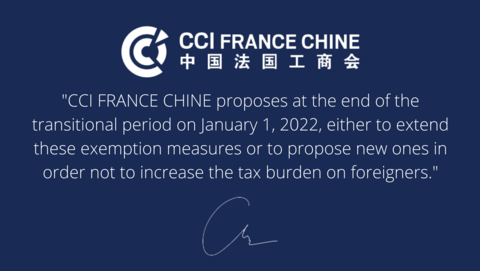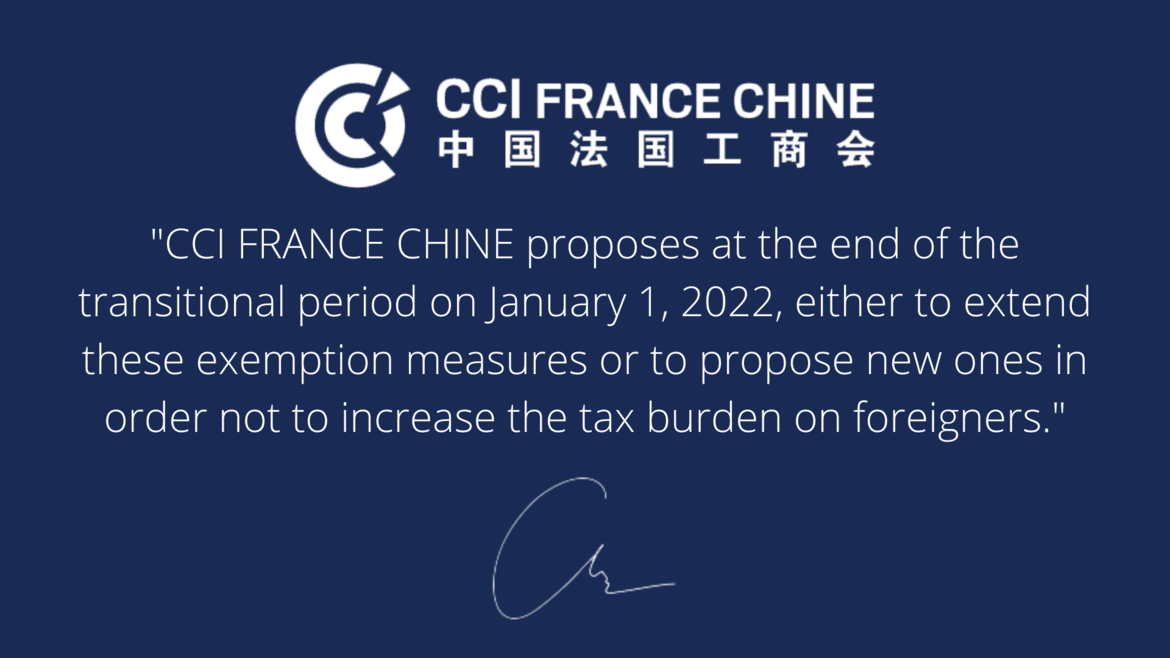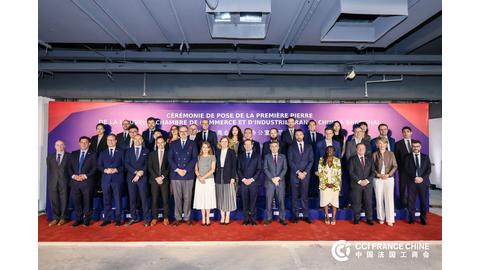Personal income tax law reform letter

Impact of the Individual Income Tax Reform on Foreign Employees in China letter to be sent to Chinese authorities.
At the end of 2018, the Ministry of Finance and theNational Tax Administration announced a new reform of the personal income tax law, especially with regard to foreigners working in China. During a three-year transition period from 2019 to 2021, foreigners can still benefit from eight tax exemptions, in particular for costs related to housing and schooling for children. According to the new regulations, applicable from January 1, 2022, foreign individuals will no longer benefit from tax exemption policies for their housing, language training fees, and their children's school fees.
Today, most foreigners working in China hold positions of high responsibility, and many of them have special professional and technical expertise. Their level of remuneration is generally well above the average for employees. Therefore, the issue of income tax and especially that of exemptions granted by Chinese tax authorities has always been a crucial issue for foreigners working in China.
For several years, the Chinese authorities have taken measures to reduce the tax burden on individuals and businesses. These measures were highly appreciated by French companies present in China. Income tax reform is a very important part of the overall tax reduction policy pursued by the Chinese tax authorities.
On May 22, 2020, during the presentation of the StateCouncil's report for the year 2020, Prime Minister LI Keqiang proposed to strengthen efforts to reduce tax levels. This declaration is a symbolic example of the Chinese government's determination to implement a comprehensive policy of reducing the tax burden on businesses and individuals.
President XI Jinping also stressed that a country's attractiveness for international talent is a major element in the competition between great powers.
In 2016, in the State Council’s publication titled"Outline of the National Innovation-Driven Development Strategy", the attractiveness of China to the best international talents is presented as one of the priorities for Chinese authorities.
In the current context of economic globalization and the acceleration of the international mobility of talent, it is becoming increasingly important for each country to ensure its attractiveness. This is especially true for talents with rare skill.
In addition, the Covid 19 crisis has had a huge impact inChina but also on the global economy.
Once the epidemic was brought under control, economic recovery became a major government goal. Tax exemption measures also play an important role in further opening up the Chinese market to the outside world and promoting sustainable development of the economy.
In conclusion, China's attractiveness for international talent will remain paramount in order to ensure the macroeconomic growth targets set by the Chinese government.
The decision to reverse tax exemptions for foreigners will considerably increase their tax burden and is not consistent with all the measures taken by the Chinese authorities for several years. This measure could also provoke the departure of some foreigners working in China and a reconsideration of investments on the part of companies already present and not yet present in the Chinese market.
Consequently, the CCI FRANCE CHINE proposes at the end of the transitional period on January 1, 2022, either to extend these exemption measures or to propose new ones in order not to increase the tax burden on foreigners. These new measures could be proposed at the regional level.
In conclusion, we call for tax incentives for foreigners working in China to be maintained in the future.



